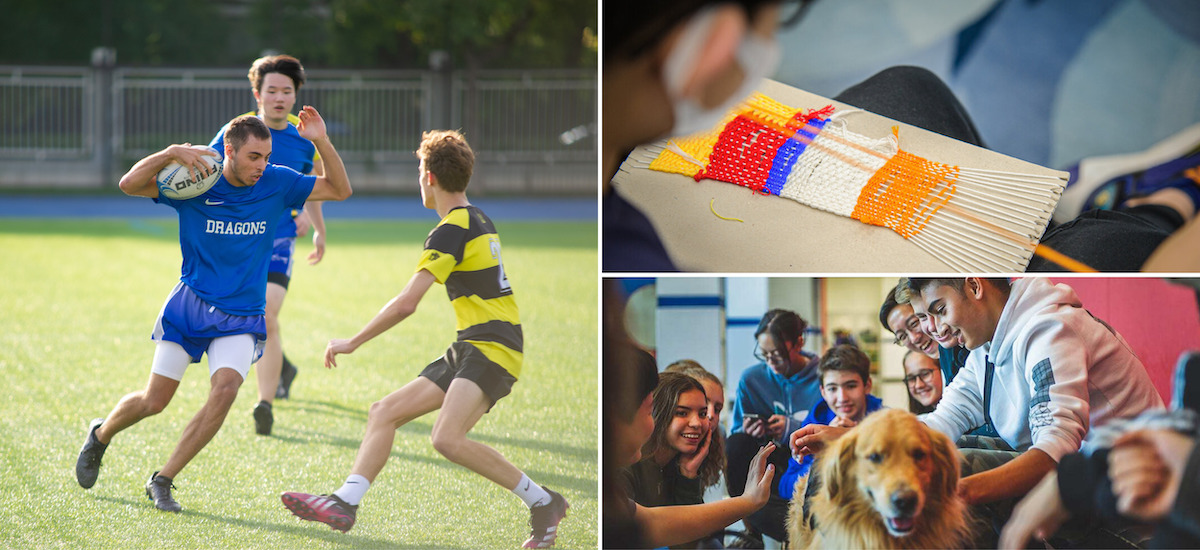How do you choose the best international school in Beijing?
Learn more about what characteristics you should look for when choosing an international school.

Co-curricular activities are an amazing way for your child to continue learning outside of a classroom setting, and with many benefits associated with co-curricular activities it’s important you consider them during your international school search.
But you may find yourself asking the question, why are co-curricular activities important for students? And why is it important you consider them as an essential component of an international school experience?
>> What characteristics you should look for when choosing an international school <<
Co-curricular activities complement academics at ISB by providing your child with new experiences and opportunities to discover passions or further develop hobbies and interests. There are many documented academic, social, and emotional benefits to participating in co-curricular activities, and at ISB your child will have access to more co-curricular options than in any other school in Beijing.
At ISB, we consider co-curricular programming to be an essential component of our curriculum, and that every student should be provided with the opportunity to participate in after school activities that interest them. Co-curriculars are a part of the full academic experience at ISB. For a more in-depth look at co-curricular activities at ISB, click here.
Here are three of the ways co-curricular activities benefit your child’s education and why you should choose an international school that can meet this important requirement.
When choosing a school, academic performance is likely a top priority for you. You want to ensure that the international school you choose will provide your child with a strong academic foundation on which to build their dreams.
There are many studies that show the positive impact children who participate in co-curricular activities can experience, with many focusing on how it supports academic achievement, rather than being a distraction as some parents fear.
According to Simon Parker, Student Activities Director at ISB, co-curricular activities are an excellent way for students to give their brains a break from their studies but to do so in a way that still benefits them academically.
“The students that are heavily involved in after-school activities are also pretty capable in the classroom,” said Mr. Parker.
One study found that there is a direct relationship between healthy participation in co-curricular activities and improved academic results, particularly in language acquisition and math skills.
Whether your child is interested in sports, performing arts, service work, or is just looking for something new to try out, ISB has over 200 co-curricular options.
Not only is co-curricular activity a driver of improved academic performance, it also has a direct positive impact on college applications.
During the admissions process, admissions officers look beyond your child’s grades and seek to understand as much about the applicant as they can glean from their academic record, which includes co-curricular activities.
Students who are active participants in co-curricular activities often stand out in the admissions process because admissions officers recognize the added challenge of a busy schedule on top of an academically rigorous curriculum. Find out why ISB chose to curate their own curriculum and how it benefits your child. It also helps give admissions officers a better understanding of who your child is and how well they will fit in at their school. Learn more how to choose a college that’s right for you.
“It might be athletics, it might be performing arts, it might be community service, but you’ve really found something that’s your thing that you can show some commitment to and that you can talk about as you graduate with some passion,” Mr. Parker said.
Co-curriculars are beneficial to your child in particular because of the social and emotional skills they contribute to.
Research has found that students who participate in co-curricular activities report better time management skills, increased feelings of independence, are better able to cooperate and work with others, have improved sportsmanship and leadership skills and even attendance.
One study found that participation in co-curricular activities positively affected childhood social development by supporting engagement with others while participating in activities children actually enjoy.
These social skills, or “soft skills,” are increasingly desirable traits in candidates for jobs or even university acceptances.
As much as we try to create a safe and warm environment for our students, we understand that school can be stressful for some.
Participation in co-curricular activities has been proven to reduce stress in children and is not limited to physical activities.
“Healthy participation in after-school programs just makes students' school experience a happier one. If children are happy then they will perform better in the classroom. Students [who participate in co-curricular activities] are generally happier, feel more safe and secure, and are less stressed,” said Mr. Parker.
At ISB, we strive to foster a learning environment where your child can thrive, and co-curricular activities are an essential part of this mission.
Learn more about what characteristics you should look for when choosing an international school.
ISB is an extraordinary school, made so by a tradition of educational excellence spanning 45 years. Establishing, nurturing, and growing such an exceptional learning community has been and remains intentional; we work hard to build strong relationships so our learning is at its best.